SCDC Update
Congratulations to SCDAA!
Congratulations to the Sickle Cell Disease Association of America for hosting its 46th Annual Meeting earlier this month, entitled: Celebrating Diversity Within The Sickle Cell Community: Commitment, Innovation, Practice. It was great to see so many Sickle Cell Disease Coalition members in attendance.
 Registration
Registration
 Attendees visit the Exhibit Hall
Attendees visit the Exhibit Hall
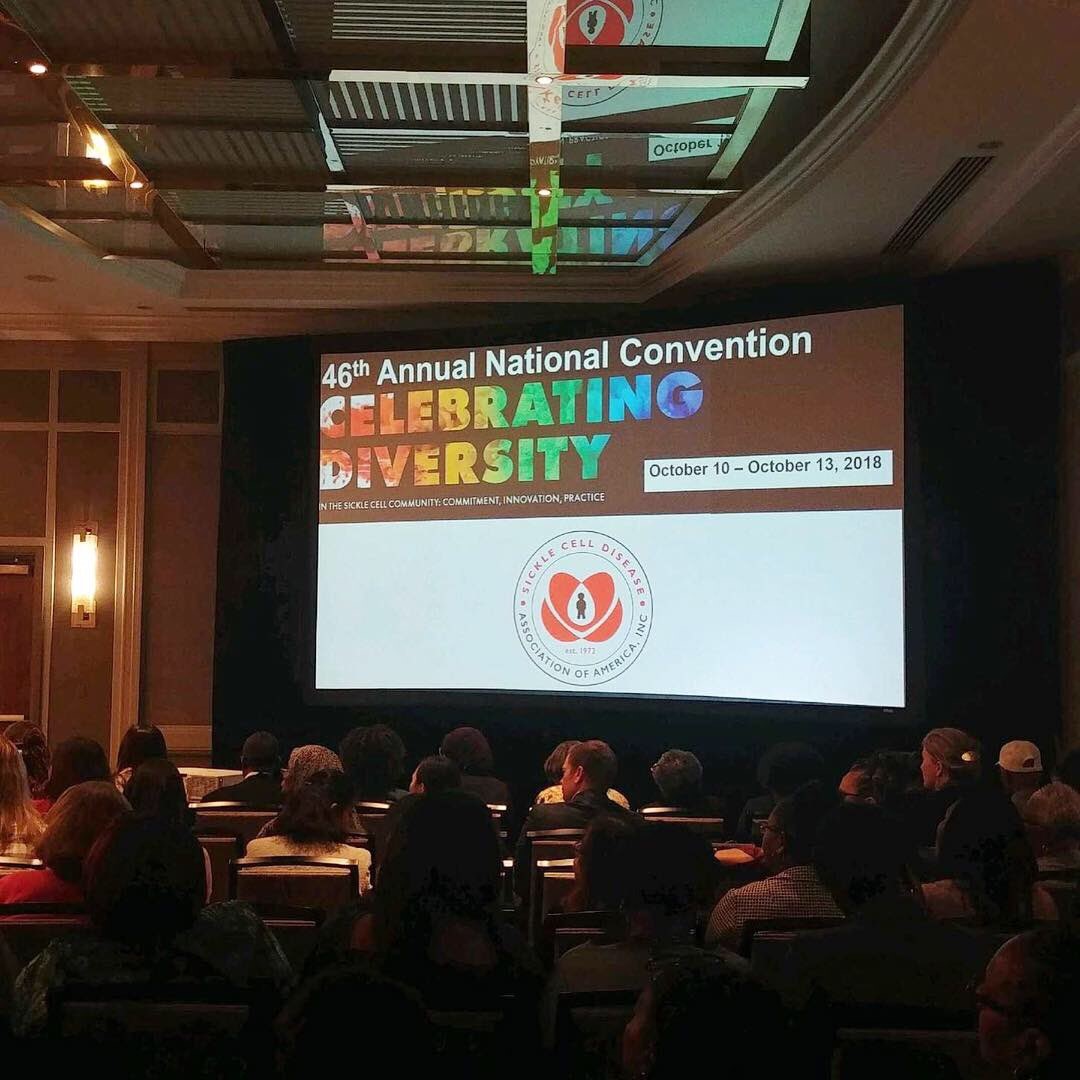 Please be on the lookout for highlights from the meeting in next month’s SCDC Update.
Please be on the lookout for highlights from the meeting in next month’s SCDC Update.
FDA and ASH Hold Sickle Cell Disease Clinical Endpoints Workshop
The U.S. Food and Drug Administration (FDA) and American Society of Hematology (ASH) co-hosted the Sickle Cell Disease (SCD) Clinical Endpoints Workshop on October 17-18, 2018. The purpose of the workshop was to identify opportunities to bring uniformity and standards to existing SCD endpoints, identify gaps, and propose development of new endpoints as a focus for future research. The two-day workshop included robust discussions and was viewed via webcast in 28 different countries. The workshop may be over, but the conversation continues. Please submit your comments on issues related to clinical endpoints for SCD by providing your feedback during the open feedback period through November 8, 2018.
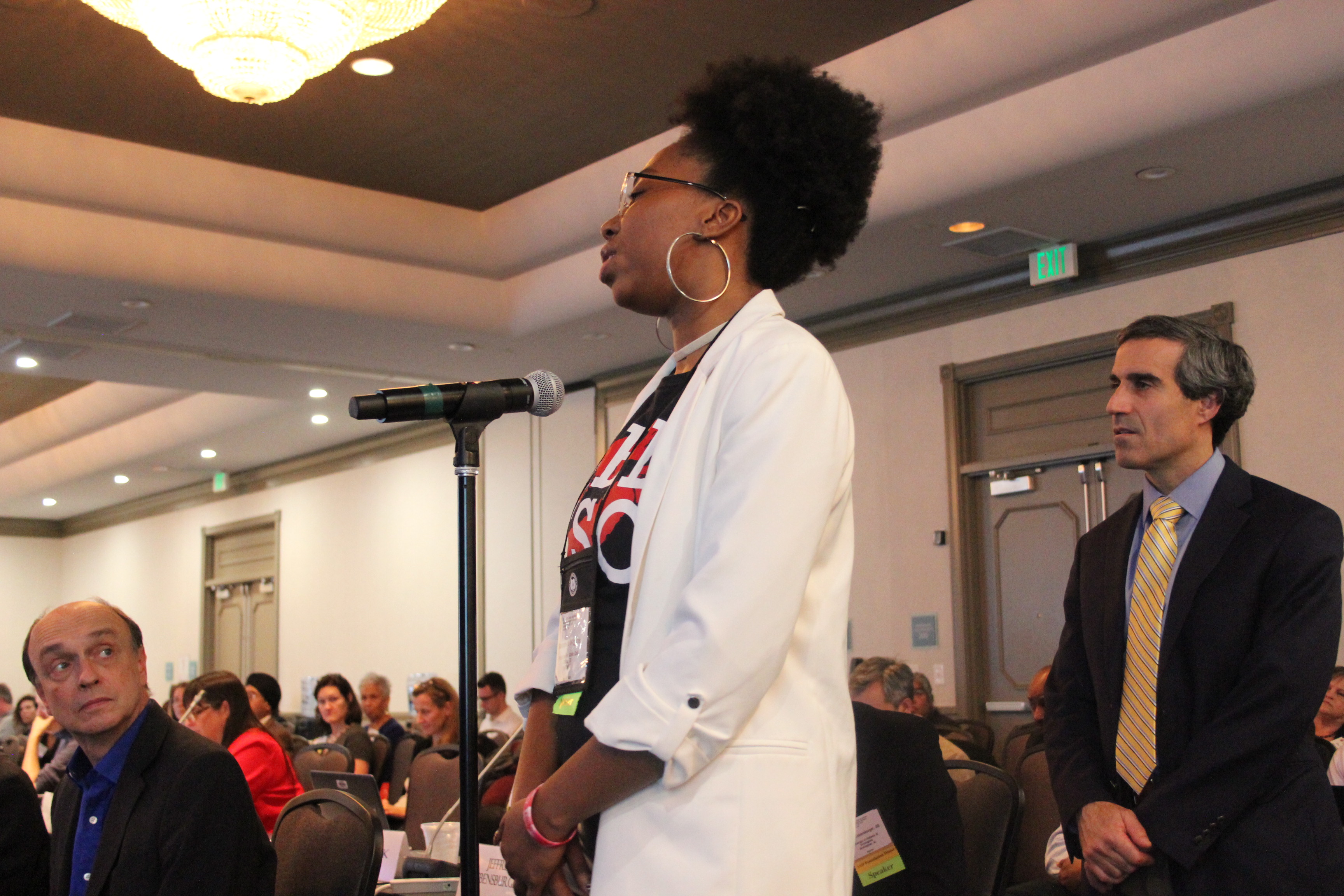 Shamonica Wiggins, patient and advocate poses a question to Panelists of the Workshop
Shamonica Wiggins, patient and advocate poses a question to Panelists of the Workshop
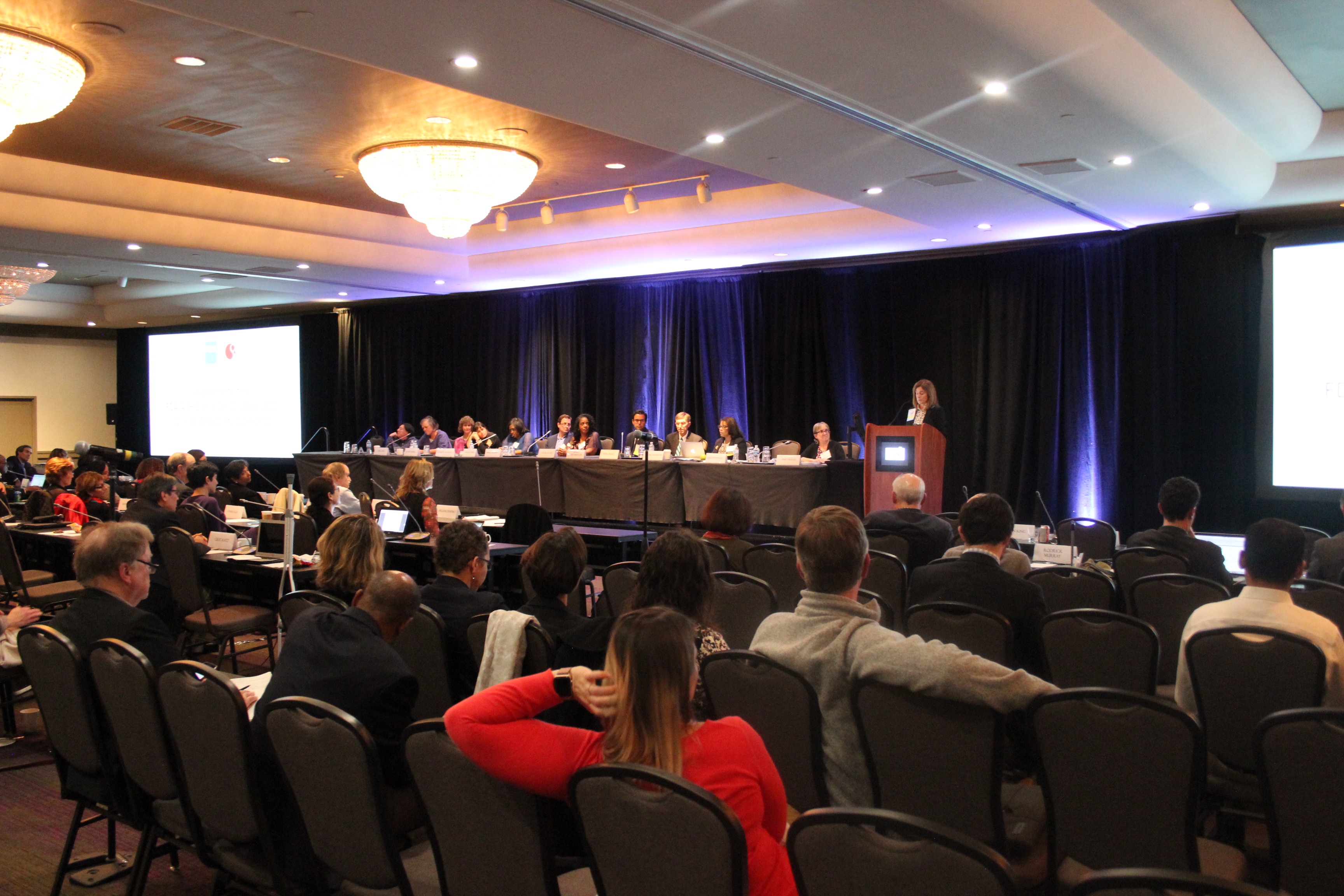
Left to Right: Stephanie Kaplan, ASH Senior Manager of Government Relations & Public Health, with co-chairs of the Workshop Ann Farrell, MD and Julie Panepinto, MD, MSPH
NEW Patient Resource from ASH
The American Society of Hematology is excited to announce a new resource about hydroxyurea for young adults and adults living with sickle cell disease (SCD). Hydroxyurea is one of the few U.S. Food and Drug Administration approved therapies for SCD. This informational booklet explains what hydroxyurea is and how it works in patient friendly language, and includes real stories from people who have taken hydroxyurea. You are encouraged to share this resource with anyone who might be interested in learning more about hydroxyurea. Please click here to download the booklet.
APHL Works to Improve Newborn Screening in Sub-Saharan Africa
For more than a decade, the Association of Public Health Laboratories (APHL) has been working with providers and health officials in sub-Saharan Africa to institute newborn screening for sickle cell disease, providing technical assistance and guidance on testing methodologies, facilitating relationships with laboratory vendors and in some cases, providing hands-on training in validating lab instruments. Jelili Ojodu, MPH, Director of Newborn Screening and Genetics at APHL, states that the goal is to help countries take the first steps in the slow scale-up toward universal newborn screening and foster small pilot projects. Read more about APHL’s newborn screening efforts in their latest global health blog post.
Pain Management Report from the Office of Minority Health
The Centers for Medicare and Medicaid Services(CMS) Office of Minority Health released a data highlight entitled The Invisible Crisis: Understanding Pain Management in Medicare Beneficiaries with Sickle Cell Disease. The CMS Office of Minority Health Data Highlights present national and regional data on health care service utilization, spending, and quality indicators for the Medicare population. The information products include an overview of the specific public health issue, provide a brief quantitative and/or qualitative analysis of the data, and explain how the findings support or relate to CMS or HHS policy or initiatives. These data products are valuable to the work of researchers, policy makers, and health care professionals. Click here to view the report.
What Does CDC’s Sickle Cell Program Do?
The Sickle Cell Data Collection (SCDC) Program is the first data collection system of its kind, collecting data from multiple sources over many years to present a full picture of the sickle cell disease (SCD) community. The primary goal of the SCDC program is to improve quality of life, life expectancy, and health among those living with SCD. Accomplishing this goal requires a joint effort across a variety of SCD stakeholders. Read the new SCDC program report to learn about the SCDC program; how the program has helped use data to drive action; and how the program can equip stakeholders with the information necessary to improve the lives of people with SCD.
Say Hello to Generation S
Novartis, along with singer and youngest winner of American Idol, Jordin Sparks, and the Sickle Cell Disease Association of America have launched Generation S – a new movement to help the sickle cell community rewrite the sickle cell story. Visit JoinGenS.com/sign-up to submit a video, audio recording, or written entry through the end of November to share your story. Submissions will be shared later in the Fall, and the collection of stories from around the country will come to life February 2019. A few participants will also have the opportunity to meet Jordin in person and work with a professional storyteller on a video to capture their personal experience with sickle cell disease.
Exciting SCD News from Capitol Hill
On October 11, 2018, the Sickle Cell Disease and Other Heritable Blood Disorders Research, Surveillance, Prevention, and Treatment Act of 2018 (S. 2465), introduced by Senators Tim Scott (R-SC) and Cory Booker (D-NJ) earlier this year, was unanimously approved by the Senate. There are a few final steps that need to occur before the legislation becomes law: the U.S. House of Representatives could take up the Senate bill, approve it and send it to the President for signature, or, the legislation will be conferenced with the House version (H.R.2410), sent back to both chambers for a vote, and sent to the President for signature. Additionally, in late September, the Senate passed Senate Resolution 661, which was introduced by Senator Tim Scott. The purpose of the resolution was to express support for the designation of September 2018 as “Sickle Cell Disease Awareness Month” to educate communities across the United States about the need for research, early detection methods, effective treatments, and preventative care programs with respect to SCD.
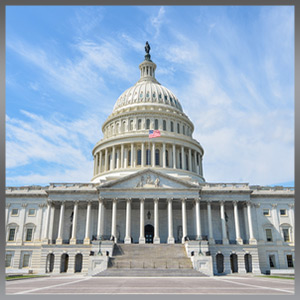
Two New ASH Guidelines on SCD Available for Comment
The American Society of Hematology is seeking comments on two draft clinical practice guidelines: sickle cell disease-related cardiopulmonary and kidney disease, and sickle cell disease-related cerebrovascular disease. Materials will be made available through November 5 and can be found at www.hematology.org/Guidelines-Public-Comment. These guidelines are the second and third of five forthcoming guidelines on SCD. Anyone is welcome to review the draft recommendations and submit comments, including ASH members, non-member physicians and researchers, allied professionals, representatives of medical societies, industry and insurance companies, patients, caregivers, and members of the public. Feedback received will be provided to the guideline panels for review. Comments will also be considered for implementation and dissemination efforts following publication, and future revision efforts. If you use social media, you may create your own tweet about the guidelines using #ASHGuidelines.
Upcoming SCD Events & Webinars
[Webinar] Innovations in Health Care Transition from Pediatric to Adult Care
The CDC’s Sickle Cell Data Collection for California program will be hosting a webinar, “Health Care Transition from Pediatric to Adult Care” on Thursday, November 1, 2018 from 1 - 2:30 pm ET. The presenters Peggy McManus, MHS, and Patience White, MD, MA, both experts in adolescent health, are from the “Got Transition?” program. “Got Transition?” is a federally-funded national resource center on health care transition. Register now.
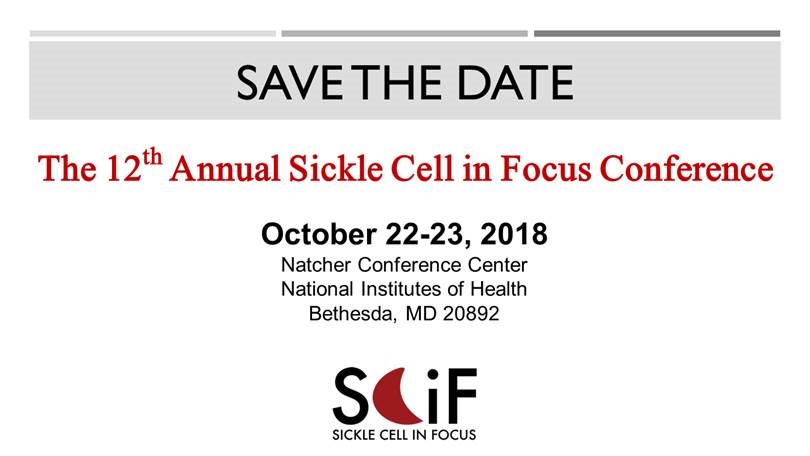
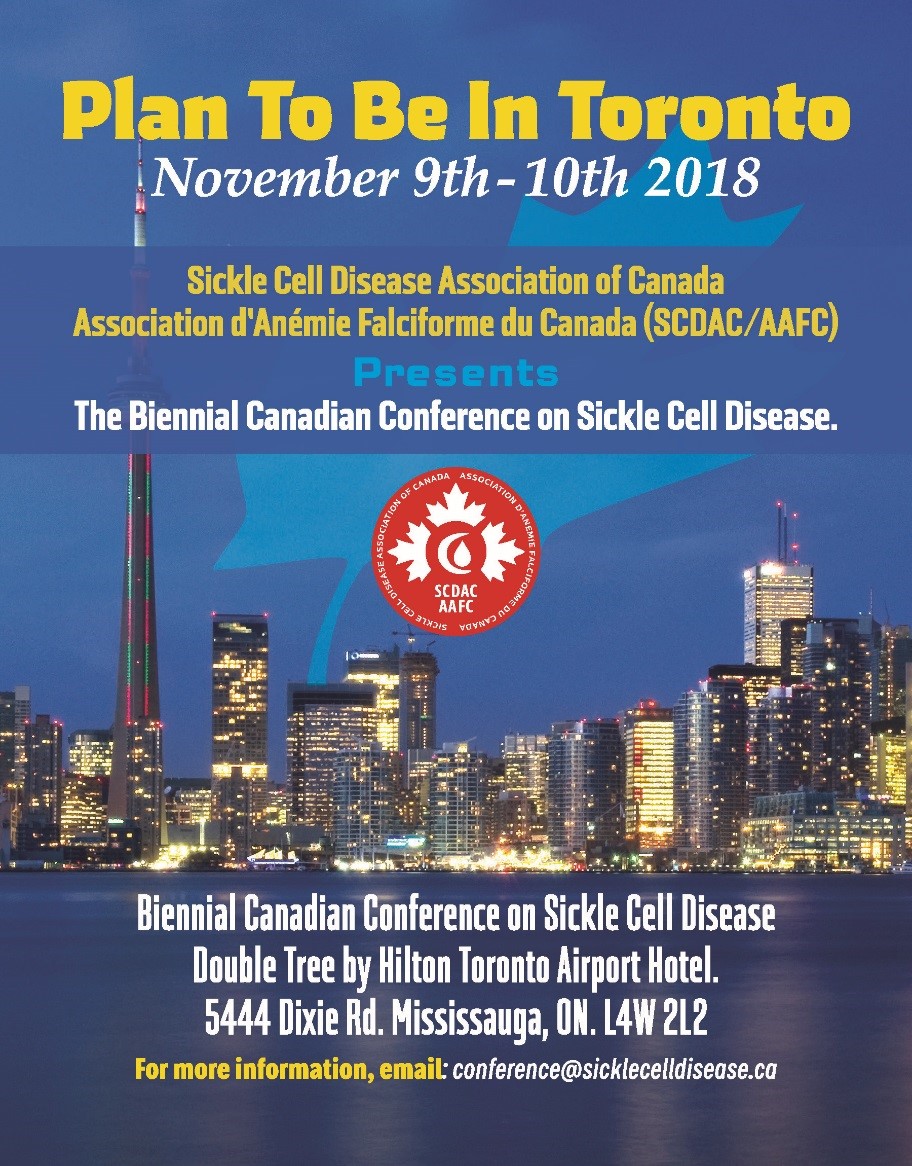
Spread the Word
The status quo is unacceptable & we are setting out to change it. Join us to #ConquerSCD! www.scdcoalition.org